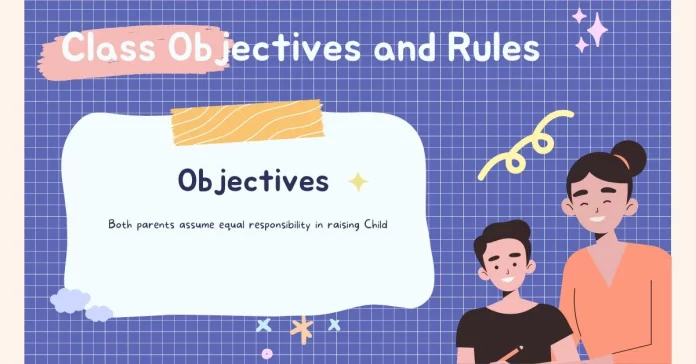CSS ESSAY 2023
Thesis Statement
Both parents have an equal role to play in raising their children, and should share responsibilities in all aspects of parenting to provide a healthy, supportive and secure environment for their children to grow.
Introduction
Parenting is a lifelong responsibility that requires love, time, and commitment. It is not only the mother’s job to raise the children but both parents need to assume equal responsibility in raising a child. The traditional concept of parenting where mothers have the primary role in child-rearing and fathers provide financially has changed over the years. In this essay, we will discuss the importance of equal parental responsibility in raising children, the different aspects of parental responsibility, and real-life experiences of equal parenting.
Exposition: The Importance of Equal Parental Responsibility
A. Benefits to the Child:
When both parents share equal responsibility in raising their children, the child is more likely to have a healthy and secure attachment to both parents, leading to better social and emotional development. Studies show that children raised by both parents have higher levels of academic achievement, fewer behavioral problems, and a stronger sense of self-esteem.
B. Benefits to the Parents:
Sharing equal responsibility in raising children allows both parents to bond with their children, reducing stress and improving overall mental health. It also promotes gender equality, enabling both parents to fulfill their aspirations in career and family.
C. Social Impact:
Equal parental responsibility can have a positive impact on society, as it reduces gender discrimination, promotes gender equality, and creates a supportive environment for children to grow.
Argumentation: Gender Roles and Parenting
A. Historical Background:
In the past, gender roles were clearly defined, with men as breadwinners and women as caregivers. However, the feminist movement in the 1960s and 70s challenged these traditional gender roles and promoted gender equality, leading to changes in society’s expectations of parenting.
B. Changes in Society:
Over the past few decades, society has evolved to support equal parental responsibility, and many countries have implemented policies to promote this change. For example, Sweden’s parental leave policy allows both parents to take time off work to care for their newborn child, promoting equal parental responsibility.
C. Challenges and Solutions:
Despite progress, equal parental responsibility remains a challenge in many societies. Solutions to this challenge include education on gender equality, implementing policies that promote equal responsibility, and challenging stereotypes and social expectations.
Description: Different Aspects of Parental Responsibility
A. Financial Responsibility:
Both parents should contribute to their child’s financial needs, including providing for their basic necessities, education, and healthcare.
B. Emotional Responsibility:
Parents should provide emotional support, love, and guidance to their children, ensuring they develop a sense of self-worth, confidence, and a positive attitude towards life.
C. Physical Responsibility:
Parents should share the physical demands of parenting, such as feeding, bathing, and taking care of their children’s physical needs.
Narration: Real-Life Experiences of Equal Parental Responsibility
Real-life experiences of equal parental responsibility can provide insight into the benefits and challenges of shared parenting.
A. Case Studies:
Research has shown that children benefit from having both parents actively involved in their lives. For example, a study conducted by the University of California found that children who grow up with actively involved fathers are more likely to succeed academically, have better self-esteem, and exhibit fewer behavioral problems.
B. Personal Stories:
Many parents who have embraced shared parenting have reported positive experiences. For example, a father in Sweden shared his experience of taking paternity leave to care for his newborn child. He said that it helped him to bond with his child, gave his partner a much-needed break, and enabled him to be more involved in his child’s life.
Conclusion:
In conclusion, both parents have an equal role to play in raising their children, and sharing responsibilities in all aspects of parenting provides a healthy, supportive and secure environment for their children to grow. Equal parental responsibility benefits both the child and the parents, and has a positive impact on society. While challenges still exist, education, policies, and challenging stereotypes can help promote equal parental responsibility. As a society, we should continue to strive for gender equality and support shared parenting to ensure the best possible future for our children.











